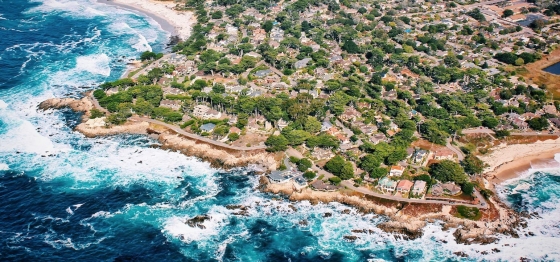Indianapolis (IN) Weather and Climate: A Comprehensive Guide
The climate in Indianapolis is marked by big temperature swings throughout the year.
Temperatures range from warm during the warmest months
to cold in the cooler months.
It also has a notably wet climate with much precipitation.
Now, let’s explore all the climate details to give you a full picture.
Average maximum day and minimum night temperature
In Indianapolis, temperatures differ significantly between summer and winter months. Average maximum daytime temperatures range from a comfortable 29°C in July, the warmest time of the year, to a chilly 2°C during cooler months like January.
At night, temperatures typically drop to an average of around -7°C during these months.Check out our detailed temperature page for more information.
Temperature ranges by month
Precipitation and rainy days
Indianapolis experiences significant rain/snowfall throughout the year, averaging 1202 mm of precipitation annually. Significant seasonal changes in precipitation occur throughout the year. During the wetter season, June receives high rainfall, averaging 157 mm of precipitation, recorded across 15 rainy days. In contrast, the drier season, February brings less snow/rainfall, with 69 mm over 10 snowy/rainy days. For more details, please visit our Indianapolis Precipitation page.
The mean monthly precipitation over the year, including rain, hail and snow
Sunshine over the year
Seasonal changes in sunshine hours are quite dramatic in Indianapolis. While July receives considerable daily sunshine with up to 9.9 hours, December marks the darkest time of the year, where sunshine is scarce with only 3.5 hours of sunlight per day.
Visit our detailed sunshine hours page for more information.
Monthly hours of sunshine
Daily hours of sunshine
Average humidity
The relative humidity is high throughout the year in Indianapolis.
The city experiences its highest humidity in December, reaching 78%. In April, the humidity drops to its lowest level at 66%. What does this mean? Read our detailed page on humidity levels for further details.
Relative humidity over the year
Forecast for Indianapolis (IN)



Select a Month of Interest
Check the conditions for any month of the year.
The best time of year to visit Indianapolis in the United States of America
During the months of May and September you are most likely to experience good weather with pleasant average temperatures that fall between 20°C and 26°C.Other facts from our historical weather data:
The hottest season / summer takes place in June, July, August and September.
July has an average maximum temperature of 29°C and is the warmest month of the year.
The coldest month is January with an average maximum temperature of 2°C.
June tops the wettest month list with 157 mm of rainfall.
February is the driest month with 69 mm of precipitation.
July is the sunniest month with an average of 297 hours of sunshine.
No idea where to travel to this year? We have a tool that recommends destinations based on your ideal conditions. Find out where to go with our weather planner.



